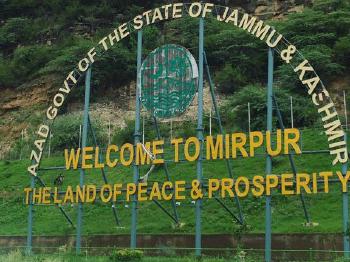Zafar Bhatti, a Pakistani Christian who was convicted of “blasphemy” in May 2017, was sentenced to death by Rawalpindi District Court on January 3.
Bhatti, who has been fighting to clear his name since his arrest in 2012, appeared in court as part of an ongoing appeal against the life sentence he received when first convicted.
The court, however, upheld the 2017 conviction, and further ruled that the proper sentence for “blasphemy” against Muhammad, the Islamic prophet, was death rather than life imprisonment.

Zafar Bhatti, who has been imprisoned for nearly ten years, was appealing against a life sentence for “blasphemy”. A District Court judge instead sentenced him to death [Image credit: Naila Inayat]
The ruling is based on a 1991 constitutional court decision that the death penalty is the only appropriate punishment for “blasphemy” against Muhammad.
Zafar’s legal representatives plan to appeal against both the death penalty and the original conviction.
Zafar was convicted of “blasphemy” for allegedly sending texts insulting Muhammad on a phone that was not registered in his name. He has always denied the allegations. In September 2020 it was reported that he had suffered a heart attack in prison, and that there were serious concerns for his deteriorating physical and mental health.
Laws outlawing insulting religion have existed in the region since 1860 and were incorporated into Pakistan’s Penal Code at the country’s founding in 1947.
The laws were strengthened under the military government of General Zia-ul-Haq (in office 1978-88). This included in 1986 the insertion of Section 295-C into the Pakistan Penal Code, stating that any person who “defiles the sacred name of the Holy Prophet” is to be “punished with death or imprisonment for life.”
This, however, was followed by the 1991 court ruling that the only suitable punishment for “blasphemy” against Muhammad was death, a more lenient sentence of life imprisonment being “repugnant to the injunctions of Islam.”
Higher courts are, nevertheless, reluctant to uphold a death sentence, and no executions have ever been carried out.
From Barnabas Aid contacts

